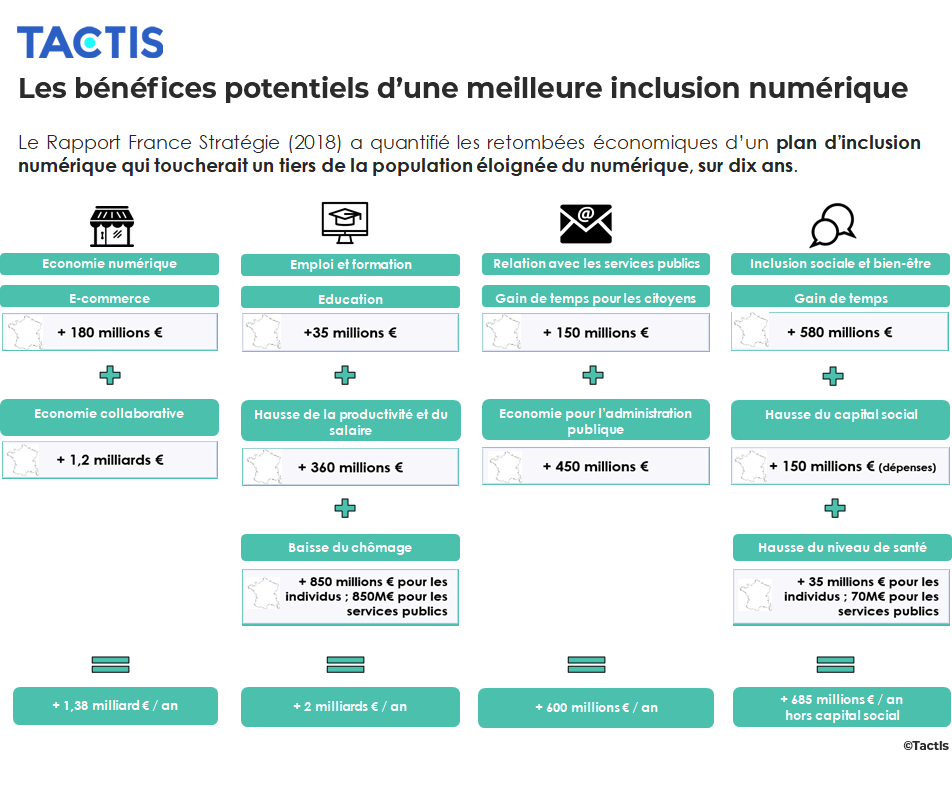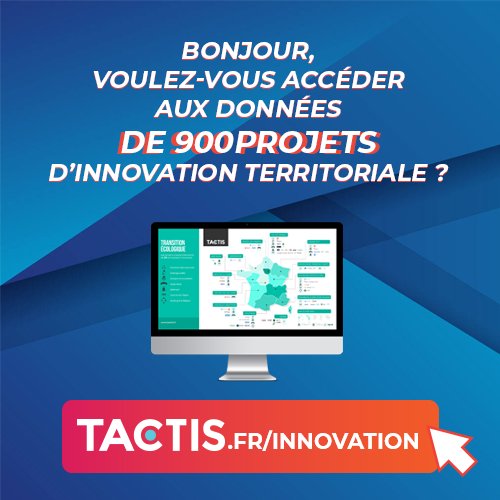Why implement digital mediation and inclusion actions ?
According to the National Plan for an Inclusive Digital, 13 million French people are in difficulty with digital technology and 40% of French people are worried about carrying out administrative procedures online. It is also a generational divide: by 2018, 27% of people aged 60 and over never use the Internet.
These figures show the need for inclusion and mediation actions to avoid a digital divide between those who are able to benefit from the potential of digital and those who are excluded from it.
Ensure that citizens have access to their rights in a context of dematerialisation of public services and the retreat of physical counters
While dematerialization offers new ways of accessing public services for a majority of users, and simplifies access to administrative information and documents, while generating efficiency and effectiveness gains for administrations, it also carries a risk of declining access to rights and exclusion for a large number of users if the faculties of each are not really taken into account.
In parallel with this growing dematerialization, we are witnessing a physical decline in the number of public service counters. People living in rural municipalities are mainly affected by these measures. These closures require, among other things, that users complete their procedures online.
Make digital technology a lever for integration and employability.
Today, the majority of job offers are distributed via the Internet. Although the widespread use of digital technologies is accompanied by an increasing use of online tools by job seekers, 12% of them do not use the Internet in their research and 3% say they "do not know how to use the Internet". Also, work to support these audiences to better master digital tools is now necessary so that they can maximize their chances of finding a job.
In addition, according to Euractiv, 90% of jobs require a minimum level of digital skills. Indeed, beyond the development of digital professions (web developer, data analysts, etc.), digital skills have become necessary in almost all other professions, which are themselves in constant evolution. Writing an email, downloading documents, reporting an event, etc. these actions, which have become daily in many jobs, require a digital skills base, so that its absence represents a real obstacle to integration.
Promote the economic development of the territories
The France Stratégie report (2018) quantifies the impact of a digital inclusion plan that would reach one third of the population far from digital over a ten-year period. The potential benefits of better e-inclusion amount to €4.6 billion at national level. Digital inclusion promotes the economic development of the territories by influencing the digital economy, employment and training, the relationship with public services, social inclusion and even well-being.

Tactis supports the territories in their inclusion and digital mediation projects.
We support stakeholders in the various stages of their mediation and digital inclusion strategy. We have the necessary expertise to:
- Carry out a diagnosis of the needs and supply of digital inclusion in a territory, in particular through the mapping of actors and training;
- Target the audiences to be trained as a priority and set up an appropriate and evolving reception policy;
- Develop a strategy for the digital inclusion of a territory with ambitious and achievable objectives;
- Direct local authorities towards mobilisable sources of funding (National Plan for an Inclusive Digital, ESF) and operational support mechanisms (Digital Pass, territorial hubs for an inclusive digital)
- Structure the actors of mediation and digital inclusion in order to support all groups in vulnerable situations;
- Co-construct with local actors digital inclusion schemes based on a Design Thinking methodology;
- Support the implementation of digital inclusion projects (assistance with procurement, facilitation of workshops on the territory, project monitoring);
- Evaluate public policies for digital inclusion.

Nicolas Potier
Contact Nicolas Potier
A question on digital inclusion ? Need to remove doubts in view of a future project ? Send an email to Nicolas Potier, Tactis Associate Director.


